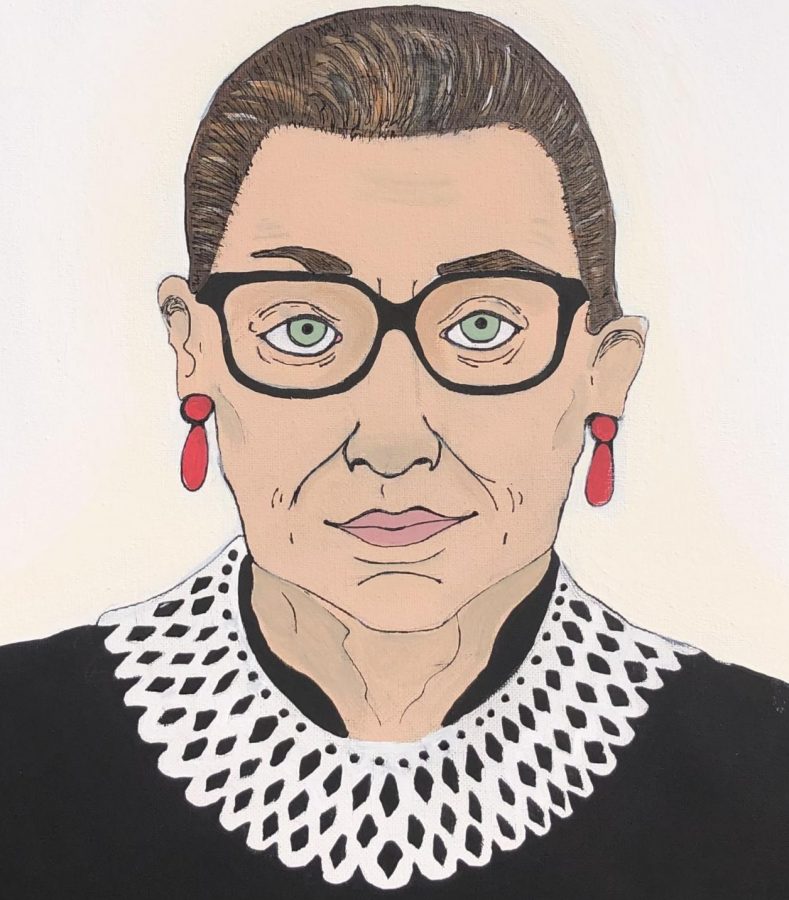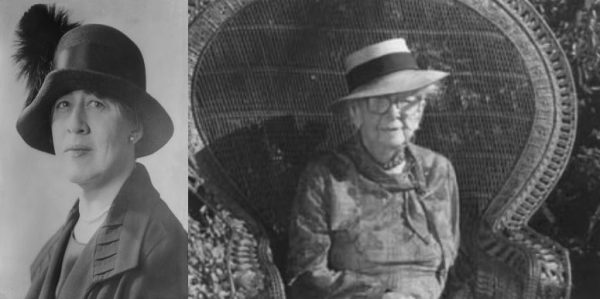Supreme Court Justice Ginsburg dies at age 87
An original painting by Olivia Gilbert, War Cry staffer.
On Sept. 18, America lost a hero, Ruth Bader Ginsburg. The Supreme Court Justice died in her home in Washington, D.C. at the age of 87 from pancreatic cancer.
Ginsburg will be remembered as a women’s rights activist, icon, legal powerhouse and a woman dedicated to equal gender rights. She paved the way for women to be able to have jobs all over the nation with equal pay and rights.
One of only nine females in her graduating class, Ginsburg earned a law degree from Harvard in 1958. This was certainly not the last time she would be a trailblazer for women. After Harvard, Ginsburg became the first-ever female professor at Columbia University Law School and founded the Women’s Rights Project in 1972 to recognize gender equality cases. In 1993, former president Bill Clinton nominated Ginsburg to serve as the second woman on the Supreme Court.
“Her voice in court and in our conference room was soft, but when she spoke, people listened,” Chief Justice John Roberts said.
Ginsburg’s time on the Supreme Court was marked by key decisions that helped women’s rights. In 1996, she wrote the majority opinion in the U.S. v. Virginia case, saying women who have the qualifications could not be denied admission to Virginia Military State Institute. Ginsburg also worked with former President Barack Obama in 2009 to pass the Lilly Ledbetter Fair Pay Act of 2009, which guaranteed women and men will be paid equally for the same jobs.
“[Ginsburg] had grit and refused to accept established barriers preventing her from achieving her goals,” Kevin Embick, an AICE history teacher at Jupiter High, said. “She also had a way of keeping her humor which is partially why I think she became such a popular icon in addition to being a successful lawyer and judge.”
Over Ginsburg’s lifetime, she became an icon for every age group. From teens and young adults to retirees and grandparents, her popularity among all groups was undeniable, and many referred to her by the nickname “Notorious RBG.” She was not only the subject of films and television shows but also of books, blogs and documentaries, all dedicated to telling her inspiring story.
“She has left a legacy of persistence and determination that can be celebrated across national, cultural, and of course political lines,” Embick said.
The justice had one dying wish, that her seat would not be replaced until after the 2020 election. President Donald Trump and members of Congress are nevertheless working to fill her seat on the Supreme Court. Trump nominated Judge Amy Coney Barrett on Sept. 28 to replace Justice Ginsburg. In 2009, a similar situation happened with former President Barack Obama, except instead of being weeks away from the presidential election, it was eight months away.











